Question And Answer
Publications
Articles, publications, books, tools and multimedia features from the U.S. Institute of Peace provide the latest news, analysis, research findings, practitioner guides and reports, all related to the conflict zones and issues that are at the center of the Institute’s work to prevent and reduce violent conflict.
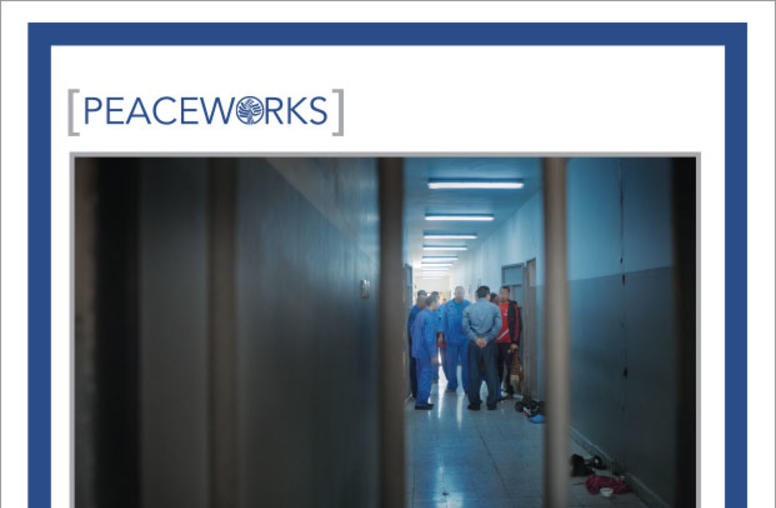
Prisons and Detention in Libya (Arabic)
التقرير الماثل هو عصارة استبيانين أُجْرِيا في ليبيا خلال عامي 2014 و2016. والغاية منه سَبْرُ أغوار القطاع الديني في ليبيا ورصد تأثيره في الحكم والمجتمع. وقد استندت عملية استخلاص نتائج هذا التقرير إلى
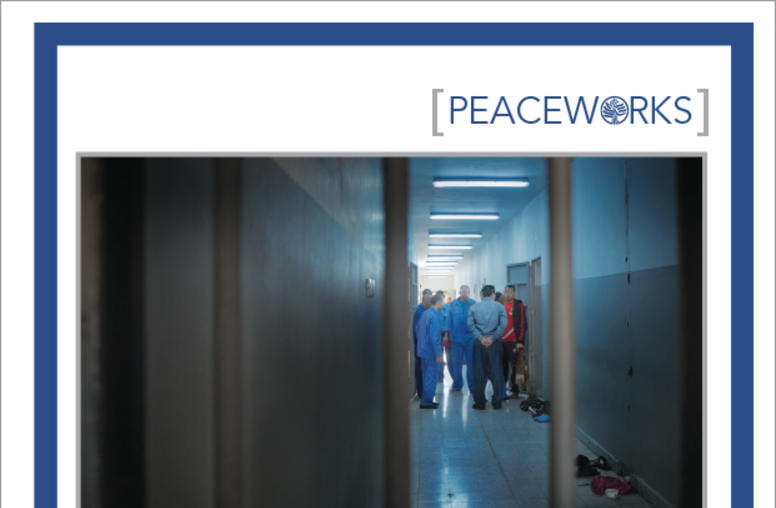
Prisons and Detention in Libya
This report examines the prison system in Libya. With the permission of the Libyan Ministry of Justice and Judicial Police, United States Institute of Peace (USIP) research teams conducted two assessments of the Libyan prison system, visiting detention facilities throughout the country in 2012 and again in 2015–16 to evaluate organizational function, security, infrastructure, and prisoner well-being. This report combines and compares the findings of the two assessments, discussing the broader...
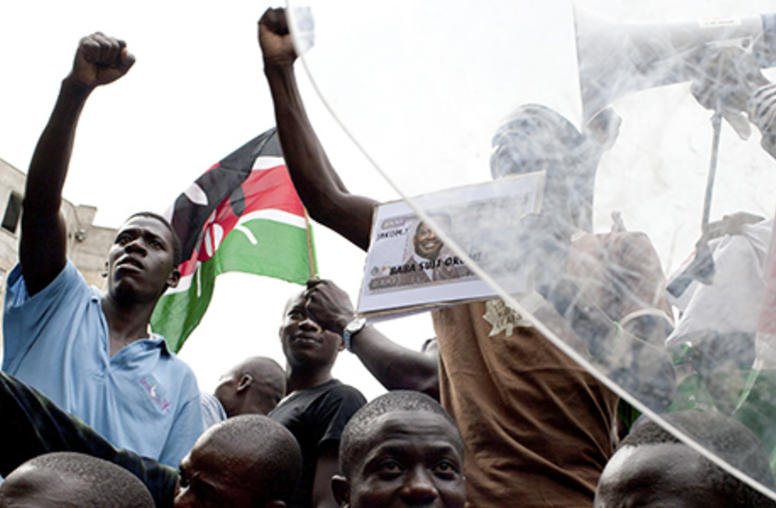
Q&A: Amid Kerry Visit, Kenya Braces for 2017 Elections
Kenyan President Uhuru Kenyatta’s first four years in office expire next year and he has announced he’s going to run for a second term in elections scheduled for August 2017. But the competition for power already is heating up.
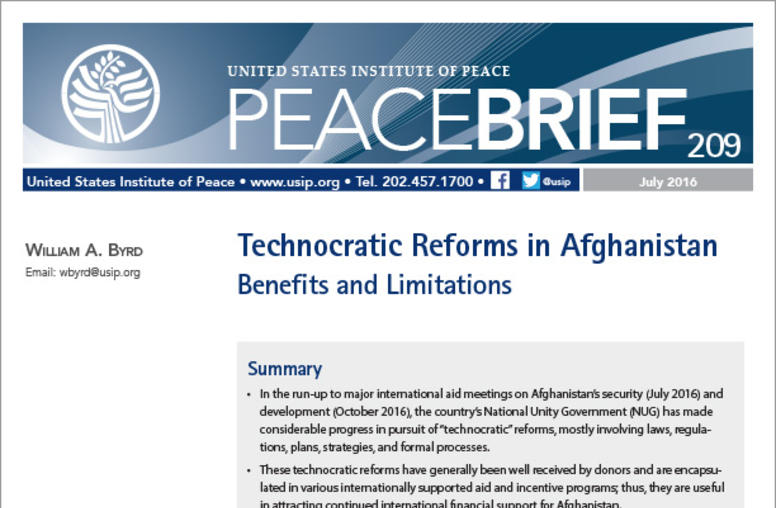
Technocratic Reforms in Afghanistan: Benefits and Limitations
Afghanistan’s “technocratic” reforms have resulted in impressive progress in areas such as public financial management. However, these reforms alone will not solve the country’s pressing security, political, and economic problems. This brief outlines the benefits and limitations of technocratic reforms and emphasizes that government and international attention should not be diverted from concrete, short-term measures to improve government functioning, strengthen security, and stimulate a mode...

Balochistan: Caught in the Fragility Trap
Although reports indicate an improvement in its overall security, Balochistan remains the most fragile province in contemporary Pakistan. This brief examines both the efficacy and motivations behind the state’s recent actions to end persistent conflict in the province.
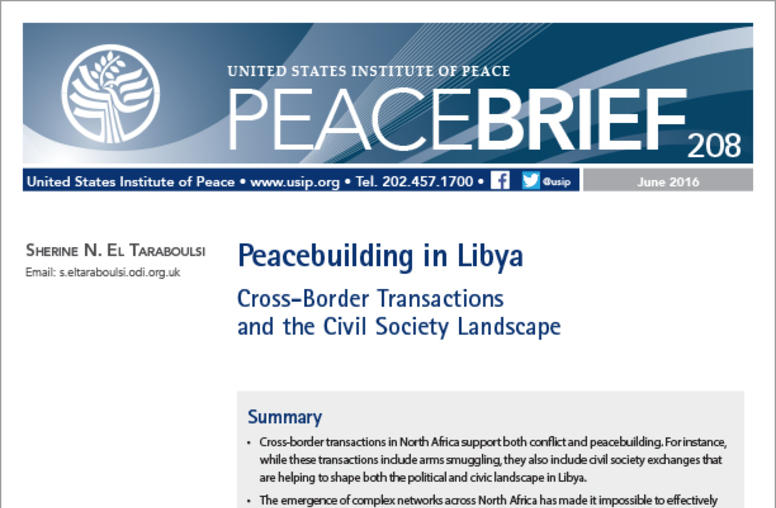
Peacebuilding in Libya: Cross-Border Transactions and The Civil Society Landscape
Cross-border transactions have been shaping the Libyan civil and political landscape for decades. However, desk research and field interviews in Tunisia reveal that interventions for peacebuilding are not fully accounting for these transactions or other regional activities. This brief argues that supporting local and regional actors in working toward a unified vision for Libya requires factoring in cross-border, civil society exchanges and the tensions that affect them.
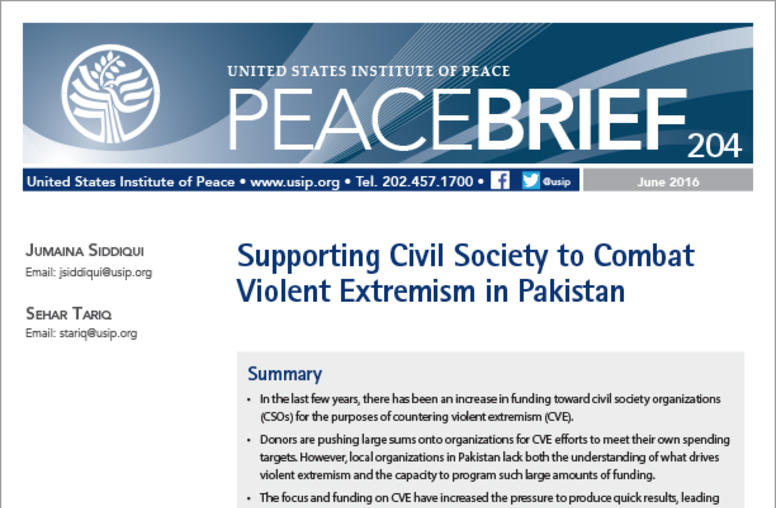
Supporting Civil Society to Combat Violent Extremism in Pakistan
In the past few years, there has been an increase in funding for civil society organizations for the goal of countering violent extremism (CVE). While donors are investing large sums for CVE efforts, in Pakistan, local organizations often lack the technical capacity to understand the nature of violent extremism as well as how to utilize such large amounts of money. This brief discusses the challenges to implementing CVE programs and provides recommendations for how stakeholders can overcome t...
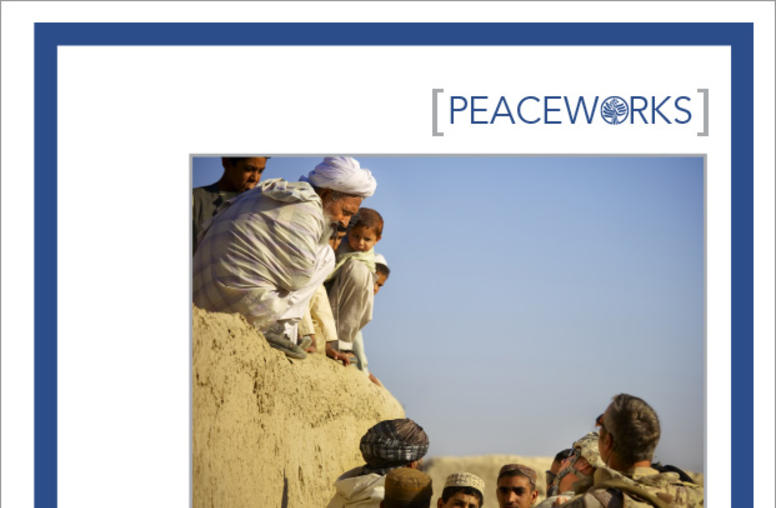
State Strengthening in Afghanistan
Since 2001, Afghanistan’s political and social landscape has changed dramatically. However, international state-strengthening interventions have arguably had mixed results. Unprecedented aid and assistance has helped the country transition to a nascent democracy, attain a greater level of security, rebuild some of its infrastructure, and open more space for civil society participation.
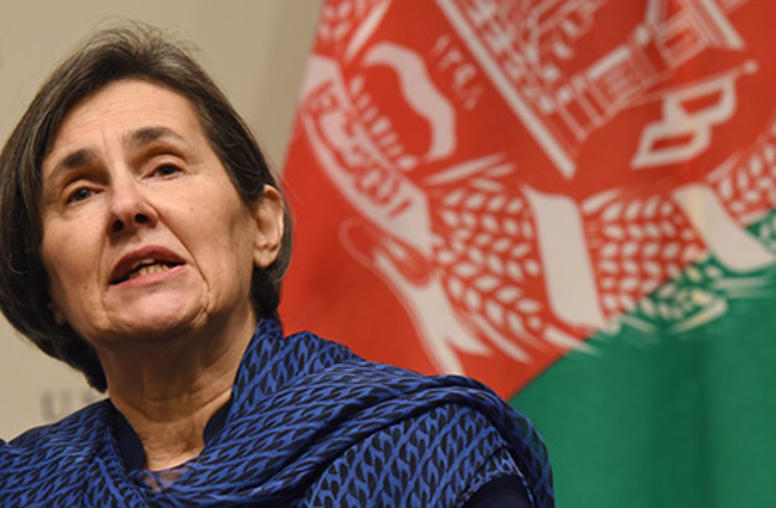
Afghan First Lady: Justice Reform is Hopeful 'Snapshot'
Afghanistan’s first lady, Rula Ghani, countering what she called the “prophets of doom and gloom,” said extensive reforms to her country’s legal system over the past 18 months are beginning to deliver results and illustrate potential progress. Speaking at the U.S. Institute of Peace, Ghani said the unity government headed since January 2015 by her husband, President Ashraf Ghani, and Chief Executive Abdullah Abdullah understand the need to provide fair and effective justice to Afghanistan’s p...
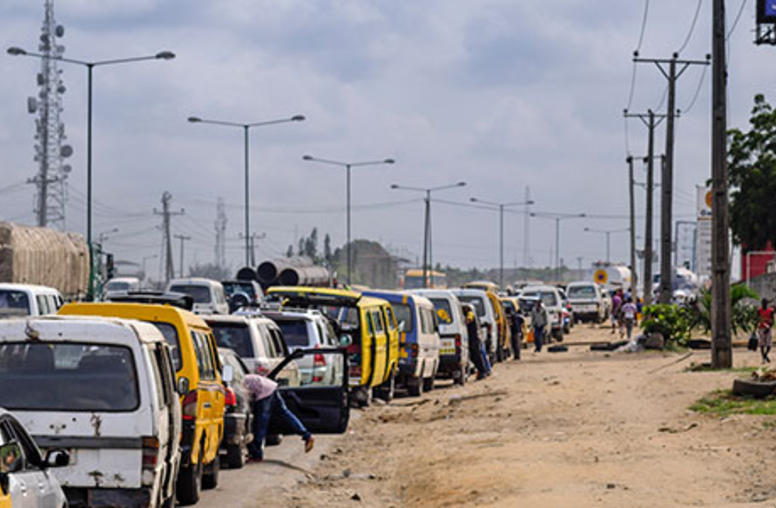
Q&A: In Nigeria, War and Peace Go Beyond Boko Haram
In the shadow of global headlines about ISIS and the Middle East, Nigeria’s government has pushed another of the world’s deadliest conflicts into a new phase. For months, Nigerian troops have been recapturing territory from the Boko Haram militant group, with support from the United States, which has sent special operations forces as advisors to help. But Nigeria’s crises, and any solutions, run wider and deeper than Boko Haram, according to U.S. Institute of Peace Program Officer Oge Onubogu...